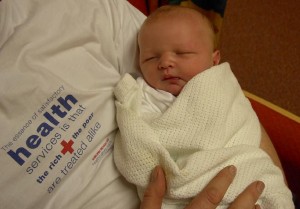How can we give babies a fair chance of health?
Voluntary Sector Resource Centre Holloway Road London N7 6PA Tuesday 22nd January 2008

Cllr Dr Anwara Ali GP, Tower Hamlets will talk about the high incidence and prevalence of perinatal morbidity and mortality in Black and minority ethnic communities resulting in unequal life chances
Dr Louise Bamfield, Fabian Society, lead researcher on the Fabian Commission on Life Chances and Child Poverty, chaired by Lord Victor Adebowale, which investigated some of the many ways in which poverty and disadvantage impact on children’s life chances. She co-authored the Commission’s final report, Narrowing the Gap, and its interim report, Life Chances: What does the Public Really Think About Poverty?
Ros Godson – Professional Officer for school aged children’s health and public health, Unite/ Community Practitioners’ and Health Visitors’ Association
Submission to the Labour Party Policy Forum February 2008 resulting from this seminar
Message from Bev Hughes:
I’m sorry that heavy diary pressures will prevent me from attending this event. Tackling health and other inequalities, at birth and subsequently, is one of the Government’s top priorities. Every child deserves to be in the best possible health. Good health in childhood is a key outcome in its own right and a crucial influence on an individual’s chances of achieving their potential in other aspects of their lives. Giving children and young people a healthy start – and helping them maintain a healthy lifestyle – is the best way to reduce the risks of chronic and acute health problems in later life, particularly those associated with poverty.
As I am unable to attend the seminar, it may be helpful if I set out some of the main Government initiatives which are in place to tackle the problem of inequality at birth. We recognise that parents, carers and other family members play the biggest part in helping children and young people make healthy choices. Therefore we are promoting support for families through Children’s Centres: currently over 1,750 centres are open, with 2,500 planned for 2008 so that all the most disadvantaged areas have a centre, with 3,500, one in every community, by 2010. Schools also have a significant part to play. Extended schools offer pupils, families and community members quick and easy referral to services, including health services, on and off site and Healthy Schools take a whole-school approach, including parents, to promoting better health through national standards in healthy eating, physical activity, emotional health and wellbeing, and personal, social and health education.
These services have a vital role in prevention and early intervention in health and in helping children establish a healthy lifestyle.
We are also testing, through 10 Family-Nurse Partnership demonstration sites, how parenting support delivered by health visitors can improve life outcomes for young first time mothers and their children. All first-time mothers under and up to the age of 20 are referred to the demonstration sites but the sites aim to focus on the more vulnerable: factors taken into account include age, income, family support and marital status.
We have set the shorter-term child health priorities in the new cross-cutting Comprehensive Spending Review 2007 (CSR2007) Public Service Agreement to improve children’s and young people’s health and wellbeing. The Children’s Plan reiterates our long-term commitment to improving the physical, mental and emotional health and wellbeing of children and young people from conception to adulthood – for children in relatively good health, those particularly vulnerable to poor health outcomes, and those who are disabled, and who are ill. We will say more in the child health strategy we will publish in the spring.
CSR2007 increased the NHS budget by 4 per cent per year in real terms. Total NHS funding will be £110 billion in 2010-11, up from £35 billion in 1997-98. The settlement provides the funding to deliver the measures set out in the interim report of the NHS Next Stage review – Our NHS, our future being led by Lord Darzi. It includes funding for a new comprehensive strategy to reduce health inequalities in life expectancy and infant mortality and additional resources to tackle child obesity. The final report of the Review is due in Summer 2008.
I wish you every success for the event on the 22nd of January. I would be interested to see a summary of the main issues discussed at the seminar.
